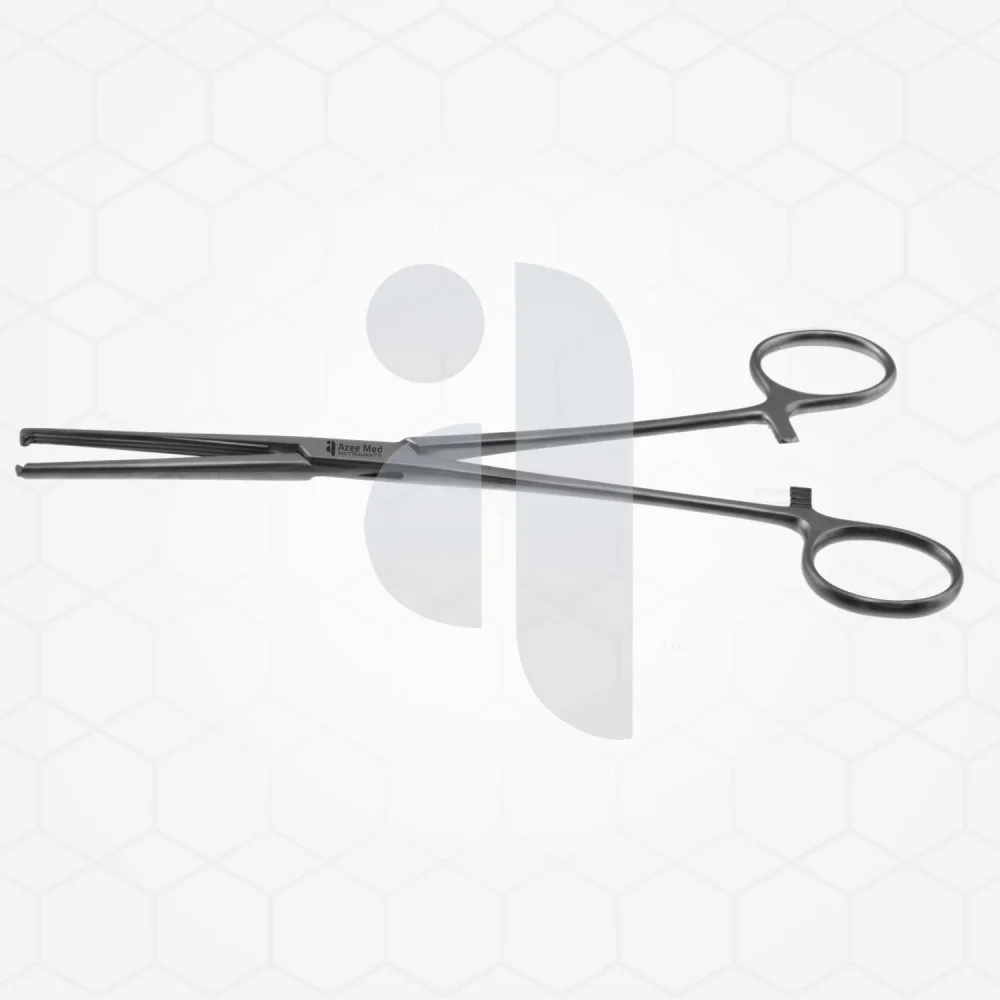views
Intestinal Clamp: An Essential Tool in Surgical Procedures
The intestinal clamp is a critical instrument designed specifically to aid in gastrointestinal surgeries. With its precise functionality and robust structure, intestinal clamp ensures safe and efficient handling of delicate tissues during operations. Understanding its role and application in the operating room highlights its importance among other surgical instruments.

What Is an Intestinal Clamp?
An intestinal clamp is a specialized medical device used predominantly in gastrointestinal surgeries, such as bowel resections or colostomies. These clamps are designed to temporarily occlude or hold sections of the intestine without causing damage to the tissue. Made from durable stainless steel, they are both reusable and sterilizable, ensuring their reliability in sterile environments.
Features of the Intestinal Clamp
To serve its purpose effectively, the intestinal clamp is crafted with a specific set of features. The clamps typically have curved, atraumatic jaws that provide a firm yet gentle grip on the intestinal walls. This design helps prevent trauma to the tissue, which is crucial for maintaining patient safety during surgery. Additionally, the ergonomic handles offer surgeons the dexterity and control needed for precise application.
How Intestinal Clamps Are Used in Surgery
The primary purpose of intestinal clamps is to restrict the flow of contents within the intestinal tract temporarily. During surgical procedures, such as bowel suturing or anastomosis, these clamps isolate the area, reducing contamination and improving visibility. Whether working with the small intestine or the colon, the careful use of the clamp ensures a cleaner and more controlled surgical environment.
Intestinal Clamps in the Context of Operating Room Surgical Instruments
Intestinal clamps are part of the indispensable collection of operating room surgical instruments. They complement other essential tools, such as forceps, retractors, and scalpels, in ensuring successful outcomes in surgical interventions. Their reusability, combined with their specific functionality, makes them a trusted component in both routine and complex procedures.
Importance of Using High-Quality Surgical Instruments
The quality of operating room instruments including intestinal clamps, directly impacts surgical precision and patient outcomes. High-quality clamps not only ensure a strong grip but also minimize the risk of post-operative complications. Selecting instruments that are well-designed and adequately maintained enhances performance and ensures compliance with healthcare standards.
How to Care for Intestinal Clamps
Maintaining intestinal clamps is vital to ensuring their longevity and effectiveness. After each use, the clamps must undergo meticulous cleaning and sterilization to eliminate any risk of infection. Inspections should also be conducted regularly to identify signs of wear, such as deformities or corrosion, and damaged tools should be replaced promptly. Proper care ensures these clamps remain a reliable part of the surgical toolkit.
Conclusion
The intestinal clamp stands out as an essential tool in gastrointestinal surgeries, providing precision and safety in managing intestinal tissues. Its role within operating room surgical instruments highlights its value in delivering effective patient care. By prioritizing quality and proper maintenance, healthcare providers can rely on tools like intestinal clamps to achieve optimal surgical outcomes. Whether in a high-stakes procedure or routine surgery, this instrument embodies the blend of innovation and functionality critical to modern medicine.






















Comments
0 comment